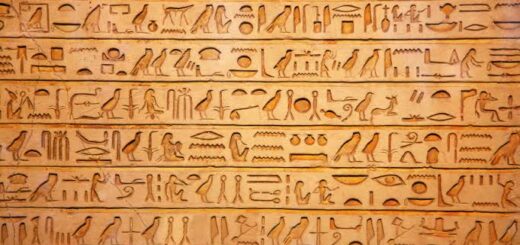HARD WATER AND SOFT WATER
Summary of hard water and soft water
Exercise of hard and soft water

Summary
Hard Water: If it contains dissolved salts of chlorides, sulphates and bicarbonates of calcium and magnesium. Example: water of some wells, sea water etc.
Soft Water :Water that is free from calcium and magnesium salts that cause hardness of water is called soft water. Example: Rain water and distilled water.
Disadvantages of hard water.

- When clothes are washed in hard water the magnesium ions (Mg++) and the calcium ions (Ca++) present in hard water, react with soap to form scum, which is insoluble in water. This results in wastage of soap. Moreover the clothes do not become clean.
- industries need super-heated steam for different processes carried out by them, so TO produce this super-heated steam, water is boiled in huge boilers and passed through pipes.
- If hard water containing calcium bicarbonate is used for this purpose the calcium bicarbonate decomposes to insoluble calcium carbonate.
Scaling:The calcium carbonate thus formed deposits at the bottom of the boiler and the walls of pipes. This deposit is stone like and is called scaling. calcium carbonate in the boiler is a bad conductor of heat. As more and more hard water is boiled more deposit is formed. When water is further heated, it is noticed that it takes more time for the water to boil. The deposited layer of calcium carbonate could develop cracks and pressure could increase inside the boiler. This could lead to a dangerous boiler blast. Hence hard water is neither economical nor safe to be used in industries.
Types of hard Water

Hard water is of two types
- Temporary hard water : Temporary hardness of water is caused due to the dissolved bicarbonate of calcium and magnesium. It can be removed by the process of boiling. The bicarbonates decompose to carbonates. The carbonates can be filtered out.
- Permanent hard water : Permanent hardness is caused due to the dissolved chlorides and sulphates of calcium and magnesium. It can be removed by adding sodium carbonate or by passing permanent hard water through zeolite.
Methods to soften hard water

- Boiling : Hard water has to be boiled and filtered to remove hardness.
- Adding sodium carbonate (washing soda) : sodium bicarbonate are added during water treatment in order to raise the pH of the water by chemically neutralizing the acidity as well as to soften the water.
- Ion exchange process : Hard water is passed through a mixture called zeolite to obtain soft water, Zeolite is a mixture of sodium, aluminum and silicates. When hard water is passed through this mixture, the calcium ions and the magnesium ions of hard water are replaced by the sodium ions of the mixture making the water soft.
Uses of Soft water
1.using soft water to wash cloths we can minimize the use of soap and cloths will be cleaned better.
2.The life span of appliances are prolonged when soft water is used.
3. Soft water helps to improve digestion.
Differences between hard water and Soft Water
| 1.Hard water does not lather with soap easily… | 1. Soft water lathers easily with soap. 2. It contains dissolved salts of calcium and magnesium. |
| 2. It does not contain dissolved salts of calcium and magnesium. | 2. It contains dissolved salts of calcium and magnesium. |
Types of hydrogen atom
A hydrogen atom with one proton and one electron is called protium. A Hydrogen atom with a proton, a neutron and an electron is called deuterium. A Hydrogen atom with a proton, two neutrons and an electron is called tritium.
Heavy Water :
Deuterium reacts with oxygen to form a compound called deuterium oxide (D2O). This is called heavy water.
Physical properties of heavy water:
The physical properties of heavy water are very different from that of water, because of the differences in the atomic masses of hydrogen and deuterium.
Heavy water is about 10% heavier than normal water. This is due to the extra neutron in deuterium.
Uses of heavy Water: Heavy water is used to prepare deuterium and in nuclear reactors. You will study about the nuclear reactor in higher classes.
Disadvantages of heavy water:
1.Heavy water is mildly toxic.
2. It is injurious to living organisms.
3. It is unfit for agriculture.
Exercises
I.Four alternatives are given under each complete/ incomplete Statement. Choose the correct answer and put a tick mark against it .
1.The chemical formula for calcium bicarbonate is
a) CaHC03 b) Ca(HCO3) 2 c) CaH(CO3) 2 d) Ca2(HCO3) 2
Ans: b)Ca (HCO3) 2
- Permanent hardness of water is due to the dissolved
chlorides and sulphates of
a) Na and Mg b) Ca and Fe
c) Ca and Mg d) Na and Mn
Ans:c) Ca and Mg
- The number of protons, neutrons and electrons in
deuterium is
a) 1,1,1 b) 1,0,2
c) 0,1,1 d) 1,2,3
Ans:a) 1,1,1
II. Fill in the blanks with suitable words :
- Temporary hardness of water is due to the dissolved
bicarbonate of calcium bicarbonate and magnesium bicarbonate - Water for commercial needs can be purified using
chlorine tablets or liquid chlorine - Hydrogen has one protons and one
neutrons. - The temperature at which hard water freezes
is 00c - Hard water boils at 105 0C
- The total number of protons and neutrons in an
atom is its mass number.
III.Underline the word which does not belong to
the group
1.hydrogen, helium, tritium, deuterium.
Ans: Helium, where as Hydrogen, tritium, and deuterium are the isotopes of the same element. but helium is not an isotope of Hydrogen, and is noble gas.
2.calcium chloride, magnesium sulphate, carbon dioxide,
calcium bicarbonate.
Ans: Carbon di oxide, because it is a gas and other are type of acid.
Name the following :
1.The isotope of hydrogen in heavy water.
Ans:(D2O)
2.The scientist who discovered deuterium.
Ans:Harold C. Urey
3.A method to remove temporary hardness of water
Ans:Clark’s method
4.A mixture of the oxides of sodium, aluminium sand
and water.
Ans:Zeolite.
V. Answer the following questions
1.Write the two disadvantage of hard water.
Ans:When clothes are washed in hard water the magnesium ions (Mg++) and the calcium ions (Ca++) present in hard water, react with soap to form scum, which is insoluble in water. This results in wastage of soap. Moreover the clothes do not become clean.
Industries need super-heated steam for different processes carried out by them, so TO produce this super-heated steam, water is boiled in huge boilers and passed through pipes.
2.What is soft water?
Ans:Water that is free from calcium and magnesium salts that cause hardness of water is called soft water. Example: Rain water and distilled water.
3.Explain two methods of softening hard water.
Ans:
- Boiling : Hard water has to be boiled and filtered to remove hardness.
- Adding sodium carbonate (washing soda) : sodium bicarbonate are added during water treatment in order to raise the pH of the water by chemically neutralizing the acidity as well as to soften the water.
- Ion exchange process : Hard water is passed through a mixture called zeolite to obtain soft water, Zeolite is a mixture of sodium, aluminum and silicates. When hard water is passed through this mixture, the calcium ions and the magnesium ions of hard water are replaced by the sodium ions of the mixture making the water soft.
4.What are the uses of soft water.
Ans:a.using soft water to wash cloths we can minimize the use of soap and cloths will be cleaned better.
b.The life span of appliances are prolonged when soft water is used.
c.Soft water helps to improve digestion.
5.Differentiate between hard water and soft water.
| 1.Hard water does not lather with soap easily… | 1. Soft water lathers easily with soap. 2. It contains dissolved salts of calcium and magnesium. |
| 2. It does not contain dissolved salts of calcium and magnesium. | 2. It contains dissolved salts of calcium and magnesium. |
6.Name the salts present in hard water.
Ans:Chlorides, sulphates and bicarbonates of calcium and magnesium.
7.What is the use of zeolite
Ans:Zeolite is widely used in domestic and commercial water purification.
8.Describe an experiment to detect hardness and softness
of water.
Ans:Take the water and wash the cloths with the soap ,if lather is formed then it is soft water no lather formation then it is hard water.
VI. What happens when
1.Hard water is used to wash clothes.
Ans:If hard water is used to wash clothes the soap do not go away from the clothes and clothes do not clean . As hard water can leave mineral deposits behind on your clothes that can cause soiling to build up on your clothes
2.Ice is dropped into a beaker containing heavy water.
Ans:the ice cubes sinks to the bottom of the beaker instead of floating. As object that is more dense than the liquid it is in will sink to the bottom. The ice cube is less dense then the water so it will float on the top.
3.Utensils are constantly washed with hard water.
Ans: the soap don’t wash the utensils correctly and they don’t clean.
4.Washing soda is added to a beaker containing hard
water.
Ans:After adding washing soda, a scum also forms on the top of the beaker.Hard water has an abundance of calcium ions. Sodium carbonate is added to hard water, it reacts with the calcium ions to produce a precipitate.
VII. Give reasons for the following :
1.It is dangerous to use hard water in industrial boilers.
Ans: If these minerals are present in the boiler’s water supply, it can lead to limescale forming on the surface of the tubes, which has the potential to cause overheating and tube failure.
2.Heavy water is unfit for agriculture.
Ans:When the water is boiled up them the calcium carbonate is formed by the decomposition of the constituents. The boiler then gets the decomposition of the elements forming a single layer of a carbonate compound. This can easily develop cracks that can be dangerous for agriculture since the land turns infertile
3.The physical properties of heavy water are different
from that of normal water
Ans:The presence of the heavier hydrogen isotope gives the water different nuclear properties, and the increase of mass gives it slightly different physical and chemical properties when compared to normal water.




























